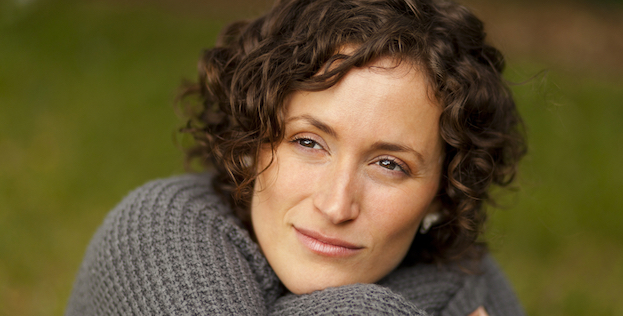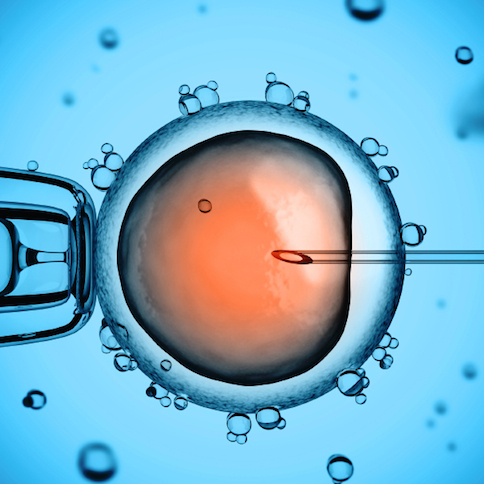Why I Froze My Eggs
Divorced at 32 and single at 37, I opted for an experimental insurance policy
My 37th birthday whipped me in the face with the icy force of an Arctic windstorm. A desperate chill gripped my heart, leaving me short of breath. It wasn't my age, per se, that brought me such anxiety. It was confronting the end of my fertile years without the warm security blanket of false hope.
How many times have you heard a story about a woman who miraculously got pregnant at 41 or 43? Odds are, she needed a donor egg to get the deed done (as many celebrities do, even if they don't admit it) because even with assisted reproductive technologies, the chance of conceiving with your own eggs gets pretty grim after 40.
When I was 36, I had the good fortune of coauthoring with Sarah Brokaw Fortytude, a self-help book about gracefully handling the challenges of aging. Sarah had frozen her eggs when she turned 37, and as soon as she heard that I was 37, single, and desperate to be a mom, she commanded me to do the same. I knew I wanted to have children and figured I could hold fast to the miraculous success stories, allowing them to reassure me, or boldly face reality and take action.
Immediately I began researching the process, which is identical to the first half of IVF right up through the point when the miniscule oocytes are carefully extracted from your ovaries. With that accomplished, the doctor freezes them to keep. It's a tiny, cold insurance policy: Eggs that don't age, even as you do.
But it's not cheap: Oocyte cryopreservation costs between $10,000 to $14,000, including medication. And until last year it was considered an experimental procedure, so insurance didn't cover any of mine. (Most plans still don't.) Luckily my loving parents, keen on supporting my journey to motherhood, offered to chip in half. I could rummage up the rest.
Then I had to clear a few more hurdles: an ultrasound to make sure that my ovaries were indeed producing eggs and a blood test to make sure my hormones were at healthy levels. When my doctor gave me the green light, I handed over a check and got ready to inject myself with fertility hormones every day for 12 days and undergo general anesthesia for the retrieval. Nothing I couldn't handle.
But as the first day of injections approached, the thought of sticking myself with needles made me queasy. Thank heavens a close friend who had been through IVF offered to walk me through it. Her comforting words and expertise helped tremendously. But once I'd mixed the meds and endured the tiniest pinprick, I knew the shots weren't what was really bothering me. It was my emotional distress.
"How did this happen?" I wondered. "How did I end up divorced at 32 and single at 37?" All I had ever wanted was to be a mother. Winding up here, with a needle in my hand, freezing eggs instead of trying to get pregnant with a loving husband… Well, it struck me as the greatest failure of my life. There was something wrong with me, my inner critic repeated, over and over again. "I'm not good enough."
I spent those first few days in a state of extreme anxiety, using all the tools in my spiritual kit to make it through: meditation, long walks in nature, talks with trusted friends, yoga classes. And somehow I made it to the operating table. A call came in from the nurse the next day: I had 18 frozen eggs – a solid number, enough to make it possible to conceive a healthy baby through IVF down the road.
At last, the dam broke. I sobbed in great gushing torrents. No, this isn't where I had planned to be in my late 30s. Yes, I still longed to find true love and have a partner to share the parenting journey. But I'd done it. I had not hidden behind platitudes about how "I still had time." I had taken control of the one aspect of my journey to having a family that I could: I had preserved my fertility.
An immense weight lifted off my shoulders. My anxiety took flight. I felt five years younger and 1,000 times happier. I was free of the pressure I'd been putting on myself since I turned 35 to find "The One." I had time.
All at once, I was out at social gatherings in San Francisco simply enjoying myself, having fun. No longer did I feel driven to mention during the first hour of a date that I wanted to have children. I could let relationships unfold more organically. But even more than that, I felt empowered. I felt in charge of my life again.
Read part two in MeiMei's quest for motherhood.
If you are in Greater New York City, you may be interested in attending the Seleni Institute’s Fertility/ART Group. Learn more about all of our program offerings.











